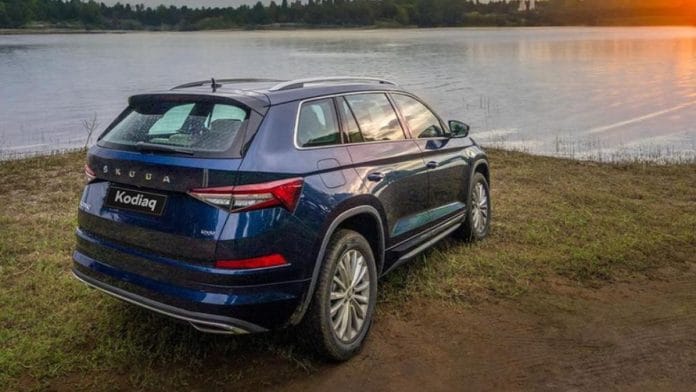When Skoda Auto launched their sedan Laura in 2009, they didn’t think of how the name would sound in Hindi. But the Czech carmaker seems to have learnt from this. It now wants the Indian public to choose the name of its latest launch—a smaller Sports Utility Vehicle in the sub-4 meter category that will be out in the market by this time next year.
Skoda’s SUVs follow a fixed naming pattern, they start with a K and end with a Q—Kodiaq, Karoq, Kamiq and the made-in-India Kushaq. The company has set up a website nameyourskoda.com where the public can make their suggestions. It also has given five options under the ‘Names we are considering’ section of the website— Kylaq, Kariq, Kymaq, Kyroq and KwIQ. Each name is inspired by different aspects of India according to the carmaker.
Petr Janeba, the newly-appointed brand director of the Volkswagen Group told me that this is a good opportunity for the carmaker to engage with the public and make the brand stronger in India. “We are aiming for a five per cent share of the market in India by 2030. That would be over 250,000 cars, which is a huge growth from today. To do that we have to constantly engage with consumers in India and build excitement for our products,” he said.
Of course, this leads me to wonder, do names matter to consumers? If one looks at the German manufacturers of luxury cars, a combination of letters and numbers is the norm. Mercedes-Benz has the A, C, E and S sedan families. But this can get confusing. The carmaker also has the G-Wagon which is an extreme off-road machine. But there is also a GL line of SUVs—GLA, GLC, GLE and GLS. And the letters (or numbers, in the case of Audi and BMW) do not change from one generation to the next.
If you are a car nerd like I am, you tend to identify cars by their internal names, like the W213 for the Mercedes-Benz E-Class currently on sale and W214 for the next generation coming at the end of this year. There are of course exceptions to the rule like the CLE coupe or the SL cabriolet, which are standalone models. But on the whole, there is a method to the madness, you kind of know where a certain car fits in.
As we explore the significance of car names, it’s interesting to note how certain models, like the Mercedes-Benz AMG A 45 S, have become synonymous with performance and luxury, influencing consumer perceptions and preferences.
Also read: I first drove Creta in 2015 and it was valuable. In 2024, it’s incredible value
Long, expensive exercise
This complicated issue of letters and numbers aside, let us get back to the question at hand. Do names matter? When I asked Yuichi Murata, director, sales and marketing, Honda Car India a few months ago why they called their latest SUV ‘Elevate’, he told me that the name needed to sound positive and communicate the carmaker’s intention. They wanted it to ‘elevate’ the customers’ lives. Honda has also toyed around with various combinations of letters (the CR-V, for example), but their most popular car, the City has maintained its name for over five generations in India.
Other carmakers try and stick to a theme for their names. Kia starts its SUV names with the letter ‘S’ — Sonet, Seltos and Sorrento. The Korean carmaker uses a single name for its electric cars. The models are distinguished by a numerical suffix. So you have the EV6 right now, but later this year the EV9 will come, and sometime in 2025 a possible EV3 as well. Hyundai too follows the same convention and has named its electric fleet IONIQ. But starting a theme doesn’t always mean that carmakers will stick to it. Hyundai, for example, had the i10 and i20, (this was in the aftermath of the Apple iPod when the lowercase i was in vogue). The next car—ix25—also followed the same convention but only in certain markets. But when it was launched in India the name was changed to Creta, which has now gone global and led to Hyundai dropping the earlier formula.
The marketing head of a carmaker who didn’t wish to be identified told me that naming is a long and expensive exercise. The process often begins before the car’s final design is locked. The name has to easily roll off the tongue and should not be an impediment to sales. “We run multiple checks to make sure that the name does not evoke a negative response. Not everyone can be as lucky as the German companies,” he said.
As for Skoda, I have a suggestion. I like ‘Kadaq’, taken from the Hindi for ‘strong’ (kadak).
@kushanmitra is an automotive journalist based in New Delhi. Views are personal.
(Edited by Theres Sudeep)






